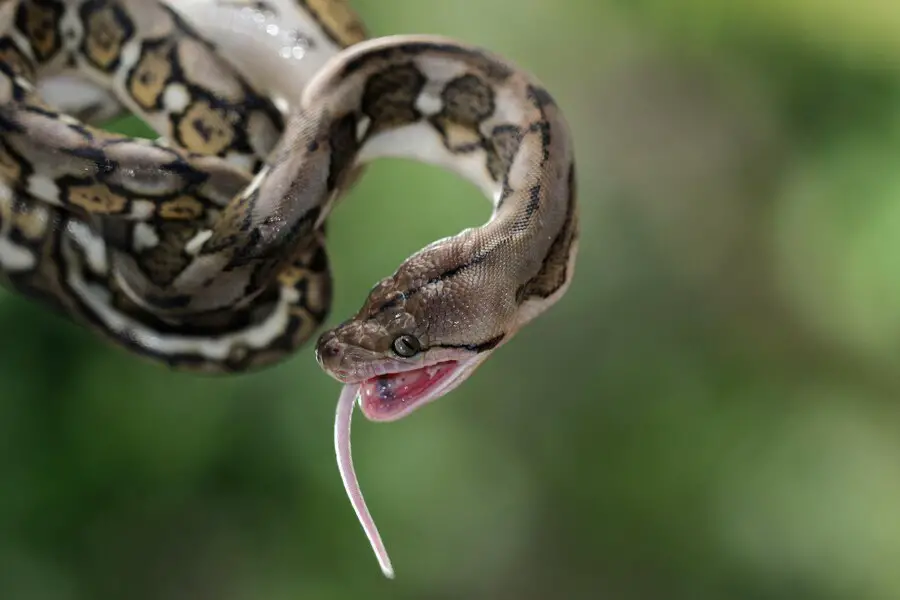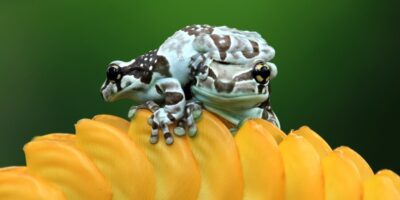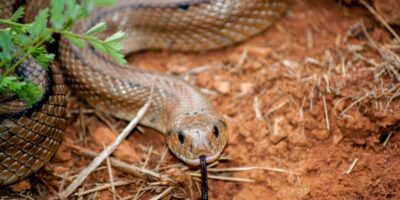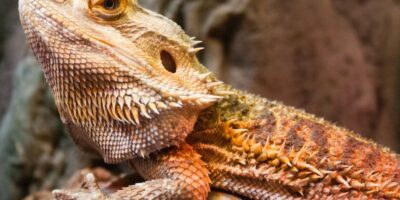Ball pythons, or Python regius, are incredibly popular pet snakes that have captured the hearts of reptile enthusiasts all over the world. Known for their striking patterns and calm temperament, these beautiful snakes make great companions for reptile lovers of all experience levels. Ball pythons are native to Africa and are named after they tend to curl up into a tight ball when threatened or stressed.
It’s a common question among snake enthusiasts and potential owners who are curious about the dietary habits of these fascinating reptiles. Many people wonder if ball pythons, being carnivorous creatures, have a preference for eggs as part of their diet. In this article, we will explore the natural diet of ball pythons, debunk any misconceptions, and provide insights into their feeding habits in captivity. Ball Pythons include eggs in their menu or if there are alternative options to consider.
Natural Diet of Ball Python
In the wild, ball pythons have a diet that consists primarily of small rodents, such as mice and rats. They are constrictor snakes, meaning they use their powerful coils to suffocate and subdue their prey before swallowing it whole. In their natural habitat of sub-Saharan Africa, ball pythons are opportunistic hunters and will typically wait patiently for the right moment to ambush and capture their prey. Ball pythons typically eat rodents, but they can also consume other small animals like birds and reptiles
Ball pythons certainly have a strong preference for small mammals like rodents. These slithery creatures have evolved to be efficient hunters, and in the wild, they rely heavily on consuming small rodents such as mice and rats for their sustenance. This preference stems from the fact that rodents are a nutritionally rich and widely available food source for ball pythons. Rodents are a popular meal choice for ball pythons due to their small size and high protein content, providing the energy and nutrients necessary for the snakes to thrive.
Ball Pythons and Eggs
There is a common misconception that ball pythons eat eggs, but the truth is that eggs are not a significant part of their natural diet. While ball pythons are carnivorous and consume a variety of small mammals in the wild, including rodents, they typically do not have a specific inclination toward eggs. In captivity, their diet is typically limited to appropriately sized rodents, which provide them with the necessary nutrients.
In their natural habitat, ball pythons are not known to eat eggs as a regular part of their diet. Their primary food source consists of small mammals like rodents, as we discussed earlier. While they may occasionally encounter eggs in their environment, such as reptile eggs or bird eggs, their main focus is on hunting and consuming live prey. The idea of ball pythons having a strong preference for eggs in the wild is a misconception.
Feeding Habits of Ball Pythons in Captivity
When keeping ball pythons as pets, it’s important to feed them appropriately sized rodents. The prey should match the snake’s size, starting with small mice for hatchlings and increasing as they grow. It’s safest to offer pre-killed or frozen-thawed prey to avoid any harm to the snake. Feeding frequency for adult ball pythons is usually once every 1-2 weeks. Keeping a regular schedule is essential for their health and well-being.
Feeding pre-killed rodents to ball pythons is crucial for safety, convenience, and preventing the introduction of diseases. Live prey can harm the snake during feeding, while pre-killed rodents are safer and more readily available. They can be stored in the freezer, saving us from finding live prey constantly. Additionally, pre-killed rodents are often more readily available and convenient to use, as they can be easily stored in the freezer until needed. This saves us from the hassle of constantly sourcing live prey.
Potential Risks of Feeding Eggs to Ball Pythons
Feeding eggs to ball pythons can pose potential risks and challenges. While some people may consider offering eggs as a novelty or variety in their diet, it’s important to be cautious. Eggs lack the necessary nutrients and balance that ball pythons require for their overall health. Feeding eggs as a regular part of their diet can lead to nutritional deficiencies and imbalances, which can have negative consequences on their growth and development.
Feeding ball pythons an unbalanced diet, like just eggs, can cause health issues. They need nutrients like calcium, vitamins, and minerals for their bones, muscles, and immune system. Inadequate nutrition can result in stunted growth, weak immune systems, and reproductive problems. It can even cause metabolic bone disease, which affects their bones. So, it’s important to give them a well-rounded diet with prey like rodents to keep them healthy.
Alternative Enrichment Options for Ball Pythons
There are other options for variety in a ball python’s diet. One option is to offer a variety of appropriate-sized prey items, such as different species of rodents or even small birds. This can provide different textures and flavors for your snake. Another option is to incorporate a rotation of commercially available reptile food products that offer balanced nutrition. These products often come in different flavors, giving your snake a chance to experience different tastes while ensuring they receive the necessary nutrients.
Lastly, you can also enrich their feeding experience by providing them with environmental enrichment, such as hiding spots, climbing branches, and puzzle feeders. Offering different prey items like quail or chicks to your ball python can have several benefits. First, it adds variety to their diet, which can help prevent them from becoming finicky eaters. Additionally, incorporates commercially available reptile food products that offer balanced nutrition and come in different flavors.
By introducing different textures, flavors, and scents, you’re mimicking their natural diet in the wild, where they would encounter a range of prey items. This variety not only adds excitement during feeding time but also ensures they receive a wider range of essential nutrients. Additionally, certain prey items like quail or chicks can offer a higher fat content, which can be beneficial for ball pythons that may require some extra calories or are undergoing growth or reproductive stages.
Conclusion
In conclusion, providing a varied diet for your ball python is essential for their overall health and well-being. We discussed the potential health issues that can arise from a nutritional imbalance, emphasizing the importance of a balanced diet that includes essential nutrients. While offering different prey items like quail or chicks can add variety and stimulate natural behaviors, it’s crucial to ensure that the prey items are appropriate in size and nutritional content.




